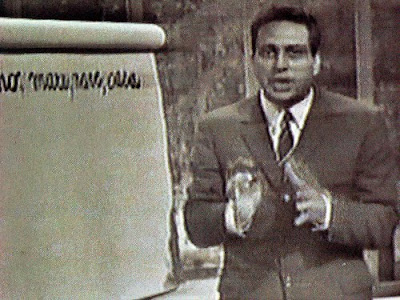
Wednesday, December 22, 2010
Monday, December 20, 2010
Literary contest "un dito nell'occhio": the winners are...
 SIGHT: Un'ultima occhiata (Brynja, Kópavogur, ICELAND)
SIGHT: Un'ultima occhiata (Brynja, Kópavogur, ICELAND) Ho saputo che il mio babbo stava lottando contro il cancro da due anni, ma lui era sempre ottimista ed ero fiducioso che sarebbe guarito. Così ho tardato ad andare da lui, anche perchè c‘erano 400 chilometri tra noi. L‘ho spesso chiamato al telefono, e lui parlava di suoi progetti per il futuro, come al solito ~ era ancora un uomo piuttosto giovane e aveva molto da fare.
Poi mia sorella mi ha telefonato per dirmi che dovevo andare là, se volevo prendere commiato da lui. Una settimana dopo sono salito sull‘aereo diretto a nord. Durante il volo, ho usato il tempo per prendere nota di alcune cose di cui parlare con lui, una sorta di “lettere a mio padre“.
Mia sorella mi aspettava all‘ aeroporto e mi ha subito detto che nostro babbo era peggiorato ed era entrato in coma. Mi ha accompagnato in macchina velocemente fino all‘ospedale .
Mi aveva avvertito che la malattia – e il trattamento – avevano avuto un effetto negativo, però non ero preparato a quell‘aspetto che avevo di fronte. Non conoscevo quell‘uomo anziano che stava là. Solo allora, quando ho preso le sue mani, l‘ho riconosciuto come mio padre. Conoscevo bene quelle grandi e forti mani .
Mentre leggevo ad alta voce la lettera d‘addio, con le lacrime agli occhi, avrei voluto che lui mi guardasse un‘ultima volta, ma non è accaduto.
Poi mia sorella mi ha telefonato per dirmi che dovevo andare là, se volevo prendere commiato da lui. Una settimana dopo sono salito sull‘aereo diretto a nord. Durante il volo, ho usato il tempo per prendere nota di alcune cose di cui parlare con lui, una sorta di “lettere a mio padre“.
Mia sorella mi aspettava all‘ aeroporto e mi ha subito detto che nostro babbo era peggiorato ed era entrato in coma. Mi ha accompagnato in macchina velocemente fino all‘ospedale .
Mi aveva avvertito che la malattia – e il trattamento – avevano avuto un effetto negativo, però non ero preparato a quell‘aspetto che avevo di fronte. Non conoscevo quell‘uomo anziano che stava là. Solo allora, quando ho preso le sue mani, l‘ho riconosciuto come mio padre. Conoscevo bene quelle grandi e forti mani .
Mentre leggevo ad alta voce la lettera d‘addio, con le lacrime agli occhi, avrei voluto che lui mi guardasse un‘ultima volta, ma non è accaduto.
TOUCH: Risarcimento danni (Carlos, Valencia , SPAIN)
Mi piacciono le curve delle donne. Ogni mattina quando prendo l’autobus per andare a lavorare, mi appoggio su di loro, delicatamente come se non lo facessi di proposito: in fin dei conti sono cieco e quindi molto credibile. Se così non fosse, verrei sicuramente preso a schiaffi. Quando “per caso” la mia mano sfiora, col dorso, una morbida natica, il corpo della sventurata si irrigidisce, fa uno scatto nel voltarsi per reagire, ma poi vede il bastone bianco, gli occhiali scuri e accetta l’oltraggio fino alla fermata successiva.Potrò sembrarvi un approfittatore, ma dal momento che sono cieco dalla nascita, vivo questa mia depravazione come un risarcimento danni. Se avessi 10 diottrie su 10 sarei un maniaco ma così sono solo un povero disgraziato.Oggi però mi è successa una cosa strana: sono salito sul 3 in direzione ospedale, seguendo un buon profumo francese, elegante e sofisticato, sono avanzato nel corridoio centrale con il palmo della mano sinistra ciondolante, ma bello aperto e TAC, raggiungo la miglior natica della mia vita, gentile e muscolosa, stretta su una fascia di viscosa.Nell’autobus risuona un vocione: “Ehi Ray Charles quello è il mio culo!”. Mi scuso balbettando per l’imbarazzo, poi con un accento straniero il possessore di tanta perfezione, a bassa voce, mi dice: “ciao! Io sono Carlo e anche Consuelo, ti interessa l’articolo?”. Rifiuto cordialmente, ma la mia vita da oggi è più felice perché ho scoperto che mi piacciono anche le curve degli uomini!
Wednesday, December 15, 2010
Giovanni, Paolo and the mystery of the puppets: the antimafia cartoons
 Rosalba Vitellaro and Alessandra Viola are two very creative and professional Sicilian women, who are madly in love with cartoons.
Rosalba Vitellaro and Alessandra Viola are two very creative and professional Sicilian women, who are madly in love with cartoons.One day, while driving to the beach, they are listening to a song by the Sicilian songwriter Carmen Consoli dedicated to Giovanni Falcone, the prosecution Attorney killed by the Mafia. “I think it would be wonderful to make a cartoon about Falcone and Paolo Borsellino [the other D.A. killed by a mafia bomb] – says Rosalba –. The new generations do not even know who they were and what they did.” It took the two artists a longer time than expected to make the idea come true. Nonetheless, thanks to Raitrade – which presented the cartoon at the international buyer convention in Cannes and will distribute it worldwide-, Raifiction production, Larcadarte – a Palermo production company- and the Sicily region, the project was finally realized. "Giovanni e Paolo e il mistero dei pupi” is now a 26-minute long cartoon, which develops a sophisticated metaphor of good versus evil, with the magic soundtrack by Samples from Verona. Alessandra explains the project: «We want it to be a fantastic story because it needed to reach the youngest audience in school and on TV in the most efficient way. The message had to be clear and unmistakable. We didn’t want the good characters to succumb in the end, and the evil characters to be charming and fascinating. The cartoon tells the story of two best friends, Giovanni and Paolo, who in the 1950s are getting ready for the celebrations at Saint Rosalia Festival. Unfortunately, the happy atmosphere is spoiled by the evil Mago Malvagio who transforms in puppets those who ask him for help. The two children fight with all their strength to “free” the puppets and will eventually succeed thanks to the help of other children and their parents. The evil Mago Malvagio will be ultimately defeated, though his shadow will survive and will be reincarnated in another evil person.” Hence, as the cartoon wishes to teach, one should never lower its guard and be always vigilant against evil, which can take any shape, even of a shadow.
The cartoon was approved by Maria Falcone – sister of Giovanni Falcone – and by the widow Borsellino, who both were involved in the project since the beginning.
Monday, December 13, 2010
Studying languages is good for your health!

According to a recent research at the Tel Aviv University, studying a foreign language keeps the mind young. It has being discovered that elderly people who speak more than one language are lucid and alert. This is because different languages stimulate different neurological processes, thus contributing to the health of the brain, as well as a better mental flexibility. So, remember: being multilingual keeps your brain young!
Also, several medical studies show that studying foreign languages help fighting brain degenerative diseases.
Friday, December 10, 2010
It is never too late ... to learn Italian
 Italian language developed from the Vernacular languages spoken on the Italian soil in the middle Ages.
Italian language developed from the Vernacular languages spoken on the Italian soil in the middle Ages.In the 16th Century, Cardinal Pietro Bembo provided the Italian language with specific rules based on the works of the great Tuscan authors of the 14th century: Dante Alighieri, Giovanni Boccaccio and Francesco Petrarca.
In the early 19th century, Alessandro Manzoni, in his famous historic novel I Promessi Sposi (the Betrothed), brought several changes to the Italian language, lowering its register to conform it to the language spoken in his time.
For the Italian people, however, who are still used to speak a variety of local dialects, Italian became a common –national- language only in the 20th century, after WW2, thanks to the mass media and particularly to popularization of TV. One show in particular made the difference in the literacy process: “Non è mai troppo tardi” conducted by Alberto Manzi and broadcasted by RAI from 15 November 1960 to 1968. It was suspended after 484 episodes, when the increased school attendance made it less indispensable.
Friday, December 3, 2010
Marco Mengoni: Best European Act at the MTV-Europe Music Awards 2010

Marco Mengoni, winner of the third season of the Italian X-Factor, was awarded the Best European Act, at the 17th edition of the Mtv Europe Music Awards, in Madrid, on November 7th.
People from all over the world watched the incredible show, which features live performances by Shakira, Bon Jovi, Katy Perry, Ke$ha, Eminem, Justin Bieber, Marco Mengoni and many more. The awards ceremony was presented by the beautiful and lovely Eva Longoria.
If you love Italian music and you haven’t heard of Marco Mengoni yet, you can check his music on the website http://www.marcomengoni.it/
Labels:
italian language courses,
Marco Mengoni,
music,
musicians
Subscribe to:
Posts (Atom)


